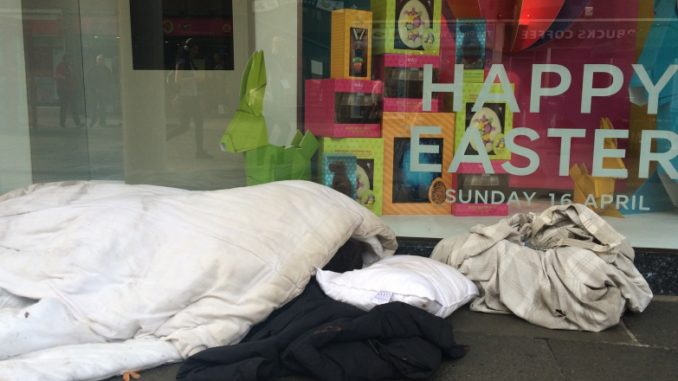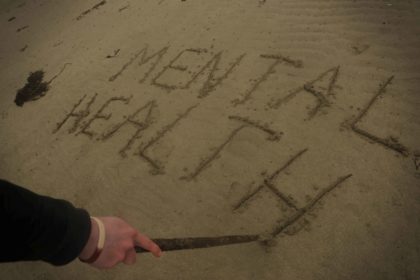
An 18-year-old from Thanet, who we are not naming to protect their identity, has ended up on the streets less than two months after being discharged from a mental health hospital.
The teenager was released from the Kent hospital after a 28 day section order in February.
She says she did not receive follow-up care and was not issued with a discharge plan.
Since leaving the hospital she has fallen into trouble, being charged with two offences and being issued a court order banning her from Ramsgate while the case is ongoing.
The ruling means the teen cannot go to her Ramsgate address and she says it has left her on the streets after an appeal to Thanet council for emergency housing failed to find suitable accommodation.
Living with mental health conditions
The teen lives with ADHD, ADD, Autistic ASD, Emotionally Unstable Personality Disorder, PTSD, Development Trauma Disorder, Anxiety, Depression, Panic Disorder and Aspergers.
She says she has experienced family breakdown and was in a hostel before moving to her address on the isle.

She said: “I normally just hide in Westwood Cross somewhere or sit in Tesco. I am so scared of being out on the streets right now.”
The youngster says she has previously been assaulted while living rough.
She added: “I am in crisis at the moment. I am a very vulnerable young adult with severe learning disabilities and severe mental health problems and have only just come out of hospital.
“ I spoke to Thanet District Council as the court said they had a legal responsibility to house me and make sure my welfare is a priority. They have said they have no legal responsibility to house me which leaves me street homeless again. I’ve lost all hope.”
‘Not priority need’
A solicitor’s letter was sent to the authority requesting emergency interim housing. But the authority originally said that while the teenager is eligible for housing she does not fulfill the criteria of priority need.
In a response letter the youngster was told that as she is receiving support from Thanet Mental Community Health Team, Probation Services, Adult Social Services and friends the authority was satisfied there would be consistent help.
The letter also stated the belief that the youngster is “capable of managing independently” and has “sufficient capabilities/resources to ensure (she) is not significantly more vulnerable than an ordinary person if made homeless.”
However, an offer was made for accommodation at the Glenwood hotel but the youngster said it was ‘inappropriate’.
A Thanet council spokesman told The Isle of Thanet News that accommodation had been arranged.
They added:“We are working hard to do all we can to assist with this case. Emergency accommodation has been provided and further work is being carried out to provide advice and guidance around a longer term solution.”
‘Can’t cope’
The teen, who says she was taken to QEQM Hospital this month but not kept in after police found her in a suicidal state on a cliff top in Ramsgate, says she is still homeless. She fears she will not get continued help from the Thanet Mental Health Team as she was told they can only support people in accommodation.
She added: “I feel they (TDC) are ignoring my mental and physical health. I’ve been getting lower and lower each day and can’t cope with it because it’s still quite cold on the streets and there are some weird people around.”
A report by Mind
Her situation comes to light in the same month as mental health charity Mind released a report saying one in ten people discharged from mental health hospitals after being admitted in crisis are not getting follow-up care within a week of leaving.
This equals 11,000 people nationally every year.

Follow up – usually a face-to-face visit or a phone call – provides continued contact and ensures that the right ongoing support is in place.
National Institute for Health and Clinical Excellence (NICE) guidelines state that all patients should be followed up within seven days because people are at high risk of post-discharge suicide in the first week.
The report says a lack of appropriate follow-up is putting significant pressure on the NHS as people not getting the help they need are more than twice as likely to end up in A&E as a result of their mental health.
According to the data Kent and Medway NHS and Social Care Partnership Trust followed up within seven days with 2200 of the 2369 people discharged.
This meant 169 people did not receive the recommended after-care but 93% of people did.
Sophie Corlett, Director of External Relations at Mind, said: “If you don’t get the right care after you leave, if you’re left to cope alone, you can end up in a revolving door going straight back in to hospital or be at risk of taking your own life.
“We are calling for NICE to update its guidance and hold local mental health trusts in England and Health Boards in Wales to account so that every person that leaves hospital after a mental health crisis gets follow-up within 48 hours.”
The growing crisis of homelessness
Kent homelessness charity Porchlight has revealed another dramatic rise of people sleeping on the streets of the county.
Over the past year (1 April – 31 March), the Porchlight street team worked with 707 rough sleepers in Kent. Two years previously, it was 385.

Porchlight chief executive Mike Barrett says it is the tip of the iceberg and has criticised the government’s approach to homelessness:
He said: “Successive governments have pledged to tackle the problem with well meaning words and platitudes, only to introduce ever more callous policies that will increase the poverty and misery of vulnerable people.
“The reluctance to acknowledge the true size of the homelessness problem is evidenced by ongoing funding cuts which are leaving local councils struggling to find ways to deal with the issue.”
The charity says the problem is expected to rocket over the next few years – new cuts to housing benefits for 18-21 year olds could leave up to 11,000 more young people at risk of homelessness by the year 2021.
Mr Barrett said: “Charities need to stand up and suggest solutions. Although we won’t be able to solve the problem on our own, we will continue to come up innovative services that help provide real solutions and stop vulnerable people becoming homeless in the first place.”
Get help
Homelessness
Porchlight helpline 0800 567 76 99
Thanet Families in Need housing support
Mental health support
| The Samaritans | 116 123 | jo@ |
| Support Line | 020 8554 9004 | |
| Careline | 0845 122 8622 | Mon-Fri 10am-1pm, 7-10pm |
| Mind | 0845 766 0163 | Mon-Fri 9am-5pm |
| Rethink | 0845 456 0455 or 0207 840 3188 | advice@ |
| Saneline | 0845 767 8000 | 6 – 11pm daily. Offers multilingual support |
| NHS Direct | 0845 4647 | 24 hour |

